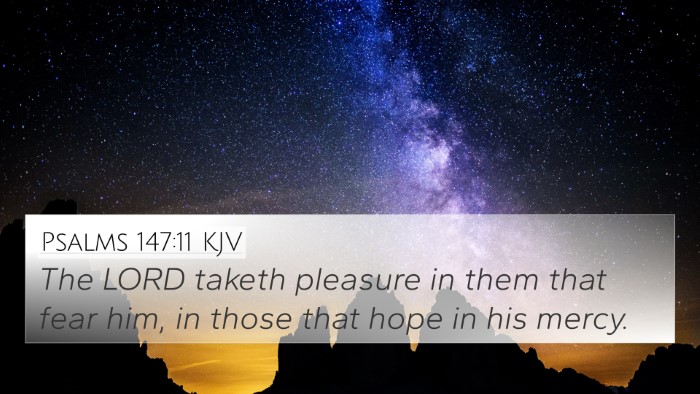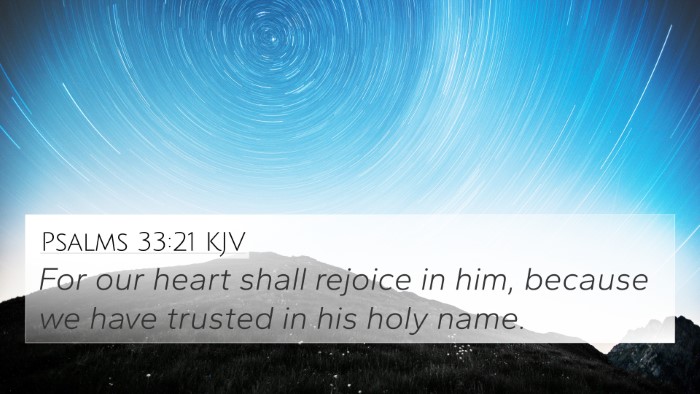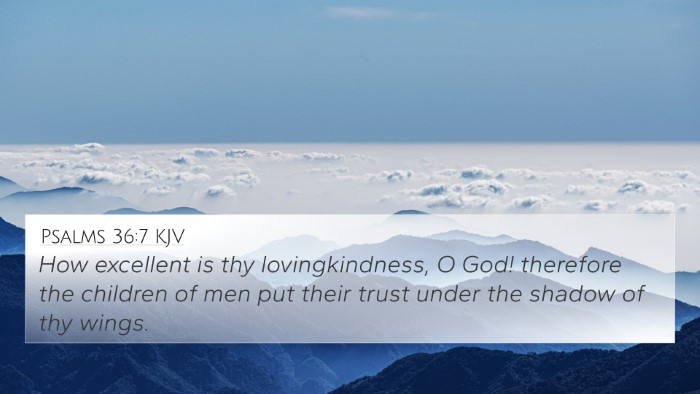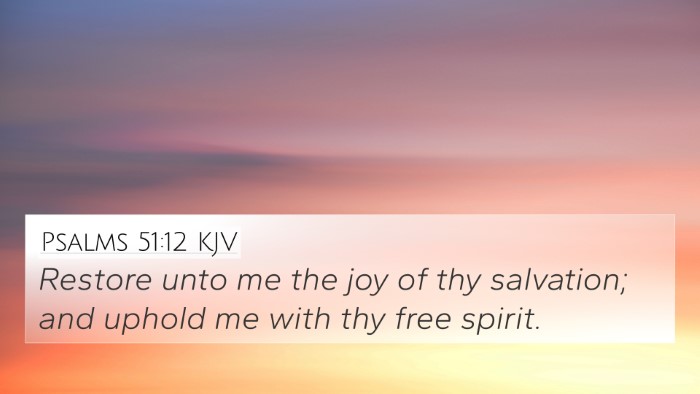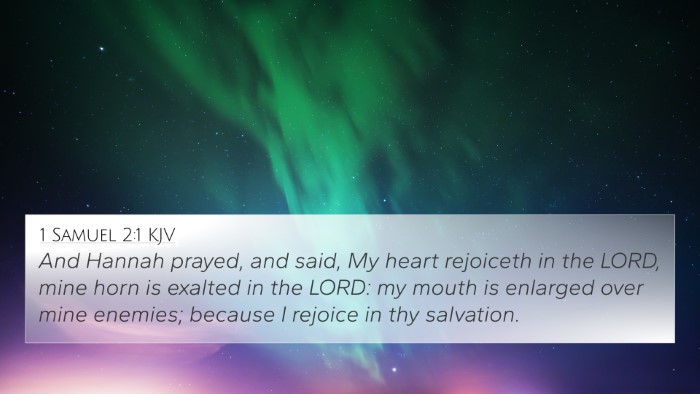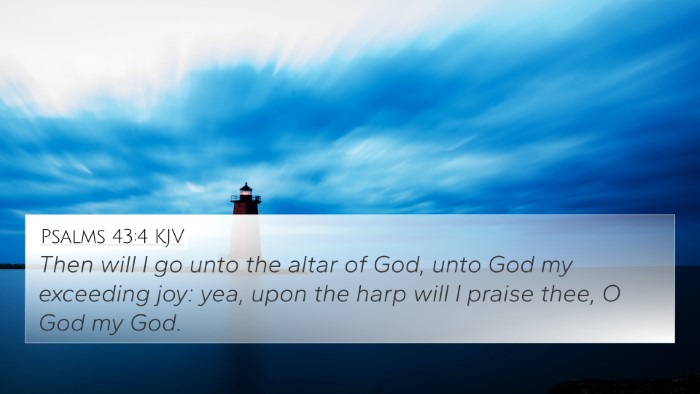Psalms 13:5 - Summary and Interpretation
Psalms 13:5 states: "But I have trusted in thy mercy; my heart shall rejoice in thy salvation."
This verse reflects deep themes of trust, mercy, and the joy that comes from salvation.
The psalmist transitions from feeling abandoned and sorrowful to a confident expression of faith in God’s mercy. The declaration of trust highlights a pivotal shift from despair to hope, encouraging readers to focus on God’s unwavering character. Below, we provide a combined analysis from notable public domain commentaries.
Commentary Insights
-
Matthew Henry Commentary:
Henry emphasizes the importance of trusting in God’s mercy even when circumstances appear dire. He notes that the psalmist’s heart is anchored in the reality of God’s redemptive grace.
This trust is crucial, as it leads to spiritual rejoicing despite external challenges.
-
Albert Barnes' Notes:
Barnes highlights the juxtaposition between the anguish expressed earlier in the psalm and this moment of hope.
The phrase "my heart shall rejoice" indicates a future expectation—an assurance that God’s salvation will bring joy.
He relates this to the broader narrative of divine deliverance throughout scripture.
-
Adam Clarke's Commentary:
Clarke provides insight into the nature of salvation in this verse, describing it as a holistic deliverance encompassing both spiritual and temporal aspects.
He suggests that trusting in God’s mercy not only fosters personal peace but also cultivates community rejoicing in God’s faithfulness.
Theological Themes
In Psalms 13:5, key theological themes emerge:
- Trust in God: The essential act of placing faith in God’s character and promises.
- God’s Mercy: A central quality of God, reflecting His compassion and grace towards humanity.
- Salvation: A multifaceted concept encompassing physical deliverance and spiritual redemption.
- Joy: A response that stems from experiencing God's presence and salvation, transcending circumstances.
Cross-References
This verse can be meaningfully connected to several other Bible verses. Below are 10 biblical cross-references that illuminate the themes present in Psalms 13:5:
- Psalm 31:14: "But I trust in you, O Lord; I say, 'You are my God.'" - A parallel expression of trust.
- Psalm 27:1: "The Lord is my light and my salvation; whom shall I fear?" - God's role as a source of salvation.
- Isaiah 12:2: "Surely God is my salvation; I will trust and not be afraid." - Acknowledgment of God's saving power.
- Jeremiah 17:7: "Blessed is the man who trusts in the Lord, whose trust is the Lord." - The beatitude of trust in God.
- Romans 10:13: "For everyone who calls on the name of the Lord will be saved." - New Testament assurance of salvation.
- Ephesians 2:8: "For by grace you have been saved through faith." - Emphasizes salvation through faith, echoing the psalmist’s theme.
- Philippians 4:4: "Rejoice in the Lord always; again I will say, rejoice!" - A New Testament echo of rejoicing in God.
- 2 Corinthians 1:10: "He delivered us from such a deadly peril, and he will deliver us again." - Assurance of God’s repeated deliverance.
- 1 Peter 5:7: "Cast all your anxiety on him because he cares for you." - The relational aspect of trust and reliance.
- Luke 19:10: "For the Son of Man came to seek and to save the lost." - Jesus as the embodiment of God's saving work.
Connecting Biblical Texts
The rich tapestry of connections in the Bible allows readers to explore:
- Thematic Links: Understanding how themes of trust and salvation resonate throughout both the Old and New Testaments.
- Comparative Analysis: How different authors express similar ideas regarding divine mercy and human response.
- Inter-Biblical Dialogue: Engaging with the conversation between various biblical texts and their interpretations across genres.
Tools for Cross-Referencing
Studying Psalms 13:5 and its connections can be enhanced through various tools:
- Bible Concordance: Use a concordance to find verses that share keywords.
- Bible Cross-Reference Guide: Resources that map out thematic and direct connections between verses.
- Cross-reference Bible Study: Methods to systematically analyze and connect verses for deeper understanding.
- Bible Chain References: A method of linking verses together based on their themes or keywords.
Conclusion
Psalms 13:5 encapsulates a journey from lament to hope. As believers reflect on this verse, it serves as a reminder of God’s steadfast mercy and the joy found in salvation.
The exploration of its connections with other scriptures enriches the understanding and reinforces the foundational truths of faith, trust, and divine deliverance.












